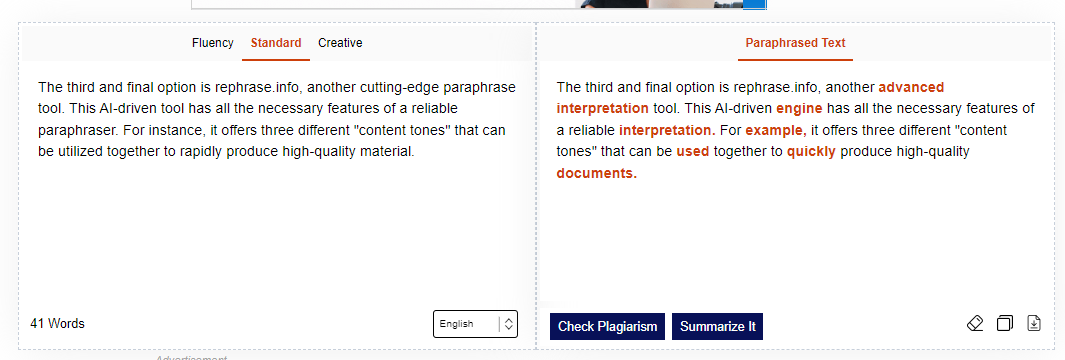Paraphrasing can be defined as the process of rewording a piece of content using different words and phrases (and by making alterations to the sentence structure) but without changing the actual meaning.
That’s a nice definition, right? Looking at it, it’s easy to appreciate how this technique can come in handy for writers and students. But, it can be a little tough to understand how marketers can benefit from it.
Can’t figure it out? Don’t worry. That’s what we’re going to be looking at in this post.
Understanding Marketers…and Content Marketers
A marketer is one person, and a content marketer is another.
When we say “marketer”, we refer to a person who engages in all types of marketing i.e., digital and traditional. And this is actually a very broad classification.
A person who sets up a billboard for their company is a marketer. A person who drives around with a promotionally-painted vehicle is a marketer. A person who hands out free samples of their company products is a marketer.
As far as these types of people/activities are concerned, there’s really not a lot of utility for paraphrasing in them.
The purpose of mentioning all the above is that we won’t actually be discussing the use of paraphrasing in the context of every type of marketer. Rather, we’ll be focusing on content marketers who have to specifically work with written content in order to promote their brands/businesses.
How Can Paraphrasing Be Useful for Marketers?
Now that we’re done with that bit of preamble, let’s move on to discussing the question itself i.e., how can paraphrasing be useful for marketers?
Paraphrasing Can Help in Creating Quality Blog Posts
One popular technique that is employed by a lot of people nowadays (for content marketing) is blogging.
Blogging is a great technique since it can serve to improve the SEO ranking of a website and it can also serve as a great method for directly educating readers/visitors about certain services and products offered by the brand.
And this is basically the first instance in which paraphrasing can be helpful for marketers.
There are a number of ways in which paraphrasing can be employed for creating quality blog posts. For example:
- Paraphrasing can help bloggers remove plagiarism from their content. In other words, by paraphrasing the words and phrases in their content, bloggers can take care of any sort of accidental plagiarism that they may have committed.
- Paraphrasing can also help content marketers in improving the clarity of their blog posts.
If there are, for example, some needlessly convoluted and hard-to-understand sentences in their post, they can run them through a paraphrasing tool. Here is an example of what this looks like in action: (The text below is not really something you’d read in a blog but…we’re just trying to make a point.)

- In the same vein, paraphrasing can be useful for bloggers when they want to remove repetition from their work. As you may have seen in the screenshot above, the tool changed quite a lot of words with their synonyms.
- This gimmick can be helpful when the same word has been repeated a lot in a piece of content, and you want to have some instances of it to be replaced with suitable alternatives.
Paraphrasing Can Help in Creating Outstanding Marketing Copies
Creating successful marketing copies is not very easy. They have to be simple and readable, yet engaging at the same time.
Copywriters have to go through the same sentence(s) multiple times before they finalize it for use in a marketing copy. If the copy is too hard to read, then it won’t be able to attract readers. If it is too simple and boring, it will have more or less the same consequence.
By using paraphrasing tools (or by doing it manually), copywriters can make their job easier. Mind you, this does not mean that a tool will be able to transform totally dull content into awesomely-written copies on its own. Rather, you can take ideas and inspiration from the changes made by the tool and then use them yourself to create good copies.
Let’s actually demonstrate how this would look in action:

In the screenshot above, you can see how the tool paraphrased the abominable input and gave it a little engaging twist. The repetitive words ‘working efficiently’ were replaced with a much more suitable phrase i.e., ‘up and running’. Similarly, instead of ‘efficient technicians’, the tool changed it to ‘qualified technicians’.
I think we’ve driven our point home. Let’s move on.
Paraphrasing Can Help Email Marketers Create Engaging Drafts
Email marketing is generally hailed as an individual and separate marketing strategy on its own, but it’s actually a sub-category of content marketing…for the simple reason that emails use written content.
Promotional emails typically consist of some content coupled with a snazzy graphic designed to attract attention. Just as paraphrasing can be useful for creating marketing copies, it can similarly be used for creating email drafts.
We won’t go into a lot of detail here. Go through the stuff that we mentioned in the heading above. It’s pretty much the same concept here as well.
Conclusion
So, the answer to the question? Paraphrasing can be helpful for marketers in a number of different ways. For one, it can help them make their marketing content unique and engaging.
There are different ways in which content is utilized by marketers, some of which we discussed in the post above. Incidentally, other than the ones we discussed, paraphrasing can be helpful for pretty much any marketing activity that uses written content.

No Responses